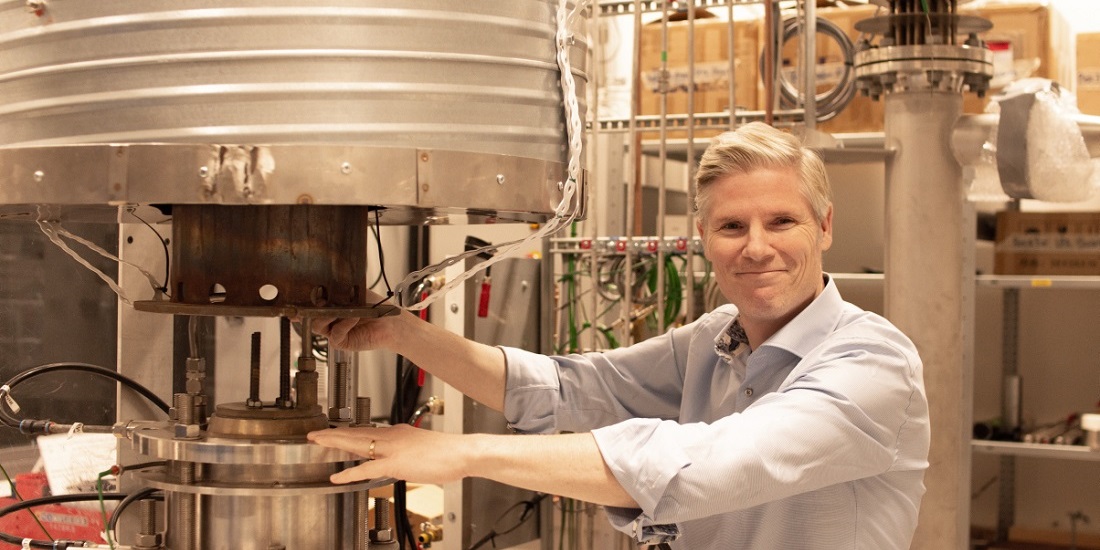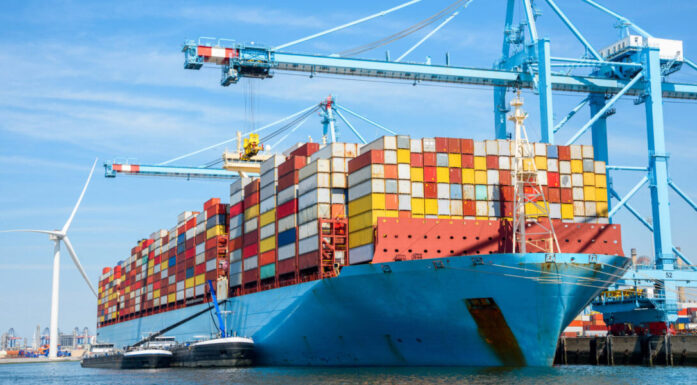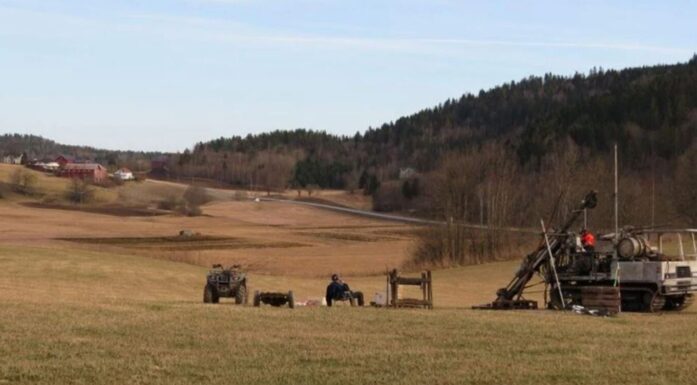Research into zero carbon gas turbines receives 12.7 million euros
How can we decarbonize large-scale power generation and aviation as quickly as possible? The European Research Council has awarded a substantial grant to a team of researchers who will explore this.
A potential game changing pathway to decarbonize large-scale power generation and aviation is to develop gas turbines that can burn zero carbon fuels such as hydrogen or ammonia. But how do we accelerate this development?
A team of researchers from NTNU, ETH Zurich in Switzerland, TU Darmstadt in Germany, and CNRS in France aims to accelerate the development of new gas turbines by understanding the combustion science of hydrogen and ammonia. The European Research Council (ERC) has awarded their project – Hyrope – a Synergy grant of 12.7 million Euros (145 million Norwegian kroner).
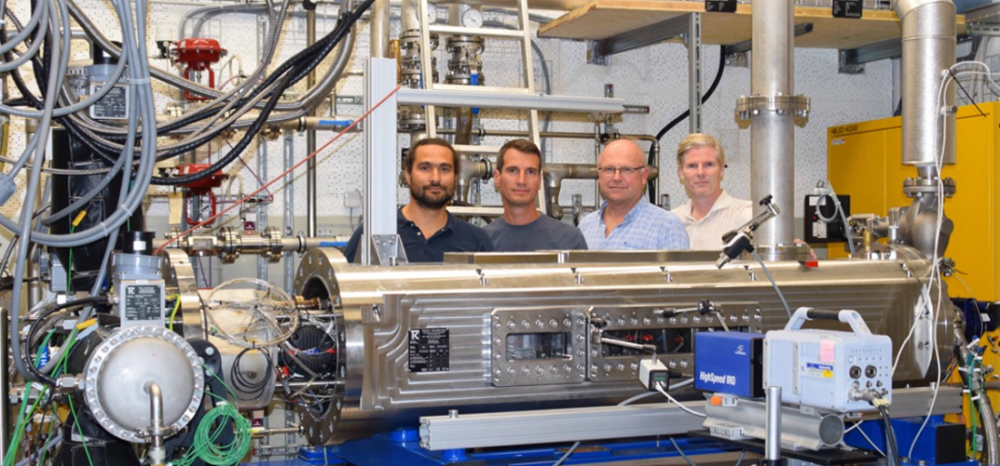
The Hyrope team. Nicolas Noiray from ETH Zurich, Laurent Selle from CNRS, Andreas Dreizler from TU Darmstadt and James Dawson from NTNU. Photo: Nicolas Noiray, ETH Zurich
Pinnacle of technology
“Gas turbines are a pinnacle of technology and are a corner stone of our energy system. It is a common misunderstanding that combustion engines are “dirty” when in fact it is the fuel.” says Professor James Dawson.
He is the Deputy Head of Research at the Department of Energy and Process Engineering at NTNU.
Hyrope brings together four European laboratories that will work together in close collaboration to conduct atmospheric and high-pressure experiments as well as large scale computations to understand how burn hydrogen and ammonia fuels safely and with minimal pollutants.
More about ERC Grants
- The European Research Council (ERC) was established by the EU in 2007 and is the leading European funding organization for outstanding research. Each year, ERC funds the very best, creative researchers to pursue projects based in Europe.
- ERC grants are divided into: Starting, Consolidator, Advanced, and Synergy Grants.
- This is part of the Horizon Europe framework program.
Gas turbines have immense potential
Despite its historical association with fossil fuels, there is immense potential to adapt gas turbines to burn zero-carbon alternatives such as hydrogen or ammonia.
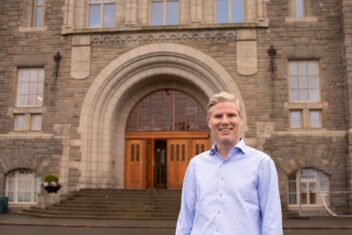
“It is a common misunderstanding that combustion engines are “dirty” when in fact it is the fuel”, says Professor James R. Dawson at the NTNU. Photo: Maren Agdestein, NTNU
However, this transition raises several scientific and technical issues since these fuels have very different combustion and emission characteristics compared to fossil fuels. Especially under high-pressure conditions.
“The effect of pressure on the combustion properties of hydrogen and ammonia is the main problem that Hyrope aims to solve.” says Professor Dawson, “Without understanding the pressure dependence we cannot develop the models and simulation tools needed for the rapid development of new gas turbines – and time is of the essence”.
The funding from ERC will last 6 years and provide the Hyrope team with over 20 PhDs and Postdocs at NTNU, ETH, TU Darmstadt and CNRS.
